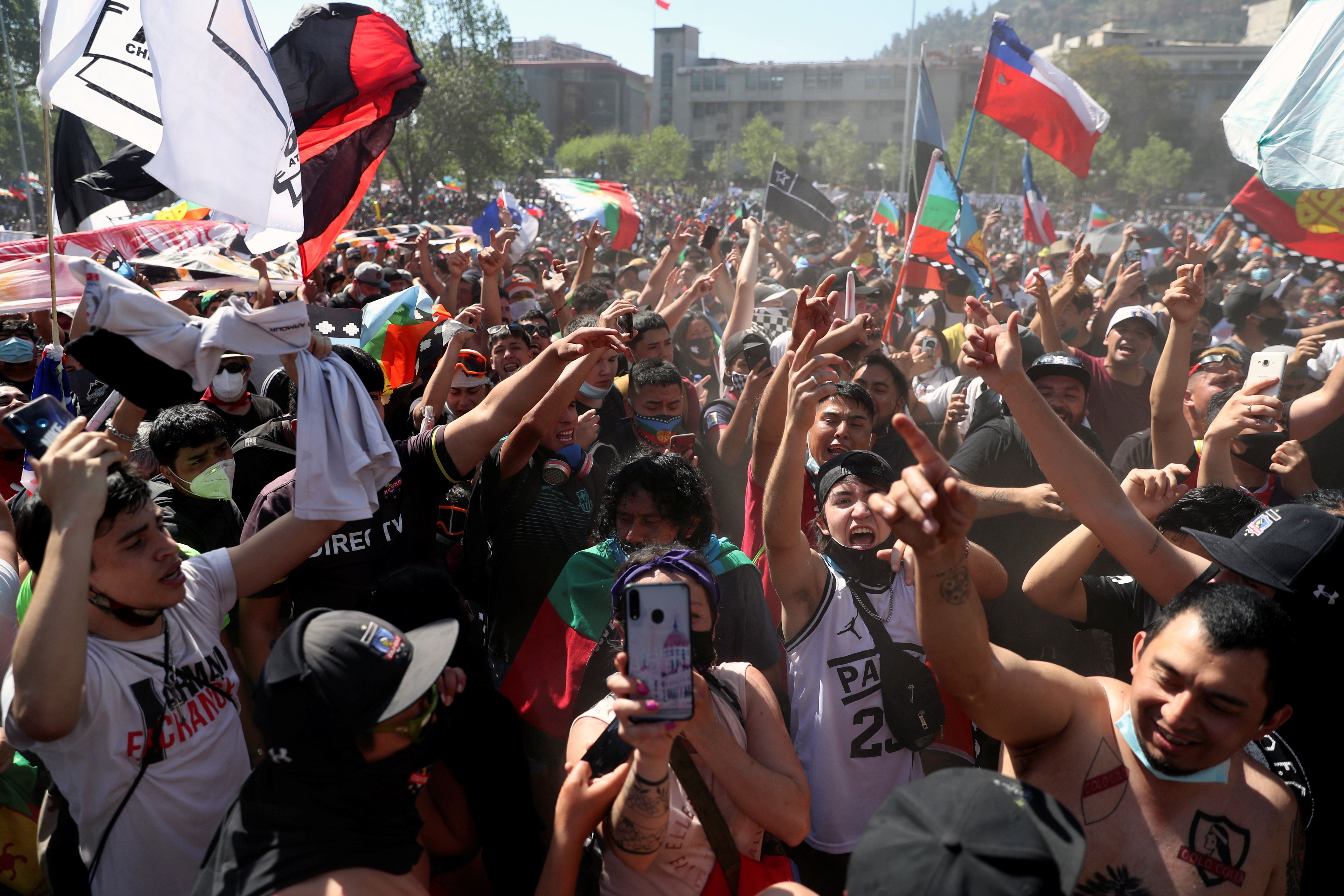October 20, 2020
Protests ahead of Chile's referendum: It's been one year since massive protests over inequality rocked the normally staid and ostensibly affluent country of Chile. To mark that anniversary this week, tens of thousands of protesters hit the streets again, in part to call for a "YES" vote in Sunday's upcoming referendum on whether to rewrite the country's constitution. But some of the demonstrators turned to violence and looting, setting the country on edge as the crucial vote looms. Replacing the country's current constitution — which dates from the days of Pinochet's dictatorship — was a key demand of last year's protesters, who say that it entrenches the country's dizzyingly high inequality by limiting the role of the state and constraining political choices. If the current protests continue through the weekend, authorities and street activists alike are concerned violence may deter some people from voting.
Google hit with US antitrust case. The US Department of Justice has filed a lawsuit against the tech giant for maintaining an illegal monopoly over the search engine market. The ruling sets up an epic battle between government regulators and one of America's most powerful companies. Google, which says it faces more search engine competition than you'd think and that its services have actually boosted small businesses, will of course fight this with the lobbying and legal power you'd expect from a trillion-dollar enterprise. But the DOJ filing comes just weeks after a Democrat-led House Committee released a 450-page report alleging various ways in which Google, Apple, Amazon, and Facebook undermine commercial and political freedom. As a bipartisan consensus emerges on the need to rein in these companies, the DOJ's Google case is sure to be a watershed event in US regulation of Big Tech.
(Economic) trouble in MENA: A report this week from the International Monetary Fund warns that COVID-19 has inflicted a "deeper and more persistent economic impact" on potentially fragile states in the Middle East and North Africa, adding to the risk of major social unrest. The IMF blames a witch's brew of the global impact of coronavirus, low oil prices, coronavirus containment measures, the impact of "limited digitalization" and "limited remote working," weak social safety nets, cash-strapped governments, and the region's disproportionate share of the world's refugees and displaced people. The list includes war zones like Syria, Libya, Somalia, and Yemen. But Lebanon, Iraq, and the West Bank and Gaza qualify too. Even in Saudi Arabia and other wealthy Gulf states, where sizable protests are far less likely, governments will probably have much less money to spend for years to come.More For You
Bad Bunny during the Super Bowl LX halftime show press conference at Moscone Center.
Kirby Lee-Imagn Images
100 million: The number of people expected to watch the Super Bowl halftime performance with Bad Bunny, the Puerto Rican superstar and newly minted Album of the Year winner at the Grammys.
Most Popular
Think you know what's going on around the world? Here's your chance to prove it.
- YouTube
An imminent US airstrike on iran is not only possible, it's probable.
Americans are moving less — and renting more. Cooling migration and rising vacancy rates, especially across the Sunbelt, have flattened rent growth and given renters new leverage. For many lower-income households, that relief is beginning to show up in discretionary spending. Explore what's changing in US housing by subscribing to Bank of America Institute.
© 2025 GZERO Media. All Rights Reserved | A Eurasia Group media company.
